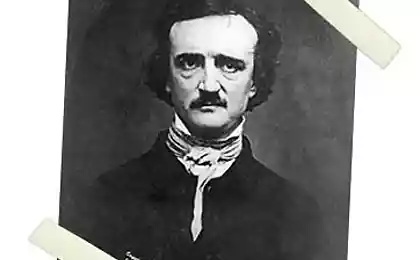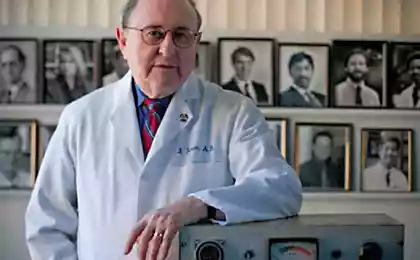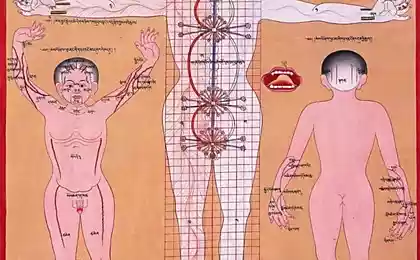444
Naturopathy
In our days about the name of the doctor can increasingly see the words "specialist in naturopathy", and it's not an incorrect definition. This medical specialization is necessary for people who are looking for ways of natural healing methods.
Though naturopathy has experienced a Renaissance only in recent years, in fact it has been around for more than a century. One of the founders and fathers of this direction became Benedict lust, created in 1901 in the new York school of naturopathy. He is a native of Germany and there and started practical activities in the field of natural medicine and later moved to the United States, aimed at wide dissemination of their knowledge.
And he did it. Over the next 20 years, the popularity of naturopathy has increased, especially among chiropractors who have received a degree in chiropractic, and naturopathy. Its development was stopped in 30-40 years, but again gained momentum in the second half of that century.
Especially in recent times people tend to turn to naturopathy rather medical purposes than for treatment of specific diseases. Naturopaths are known because of their visits to patients take a long time. Sometimes they are over an hour discussing all manner of life of patients, not just form the list of symptoms. Naturopaths in a more comprehensive approach to the treatment and most work on prevention of the disease using the human body's ability to self-medicate.

In the principles of naturopathy, in particular, includes:
A partnership between patient and physician in the treatment process
— Adequate use of allopathic and complementary methods to achieve the most optimal results
- The account of all factors that influence health, Wellness and disease, including the cognitive status of the patient and of his spirit in a single systematism-body
- According to the principle that true medicine should be based on real science, open to new paradigms
- Minimal use of invasive interventions

The problem with naturopathy is that it focuses on natural methods of treatment instead of traditional medicine. For example, naturopaths few years ago, has come under fire due to appeal to parents to protect their children from vaccination is a dangerous proposition. They were also criticized for the lack of practical medical experience during training as diploma scientist not associated with the amount of clinical training as a medical doctorate. As a result of the license naturopaths are not everywhere.
So, to go to naturopath or not to go? And for adherents of naturopathy, and for skeptics it is possible to find a middle ground. Some doctors are available to both diploma in naturopath and also focus on a holistic approach to a healthy lifestyle, while continuing the treatment process to make full use of the advantages of traditional and modern medicine. In the group of medical professionals can include and also naturopath. It meets the requirements of many patients who feel that doctors spend too much time diagnosing the disease and not the patient.
Source: /users/104
Though naturopathy has experienced a Renaissance only in recent years, in fact it has been around for more than a century. One of the founders and fathers of this direction became Benedict lust, created in 1901 in the new York school of naturopathy. He is a native of Germany and there and started practical activities in the field of natural medicine and later moved to the United States, aimed at wide dissemination of their knowledge.
And he did it. Over the next 20 years, the popularity of naturopathy has increased, especially among chiropractors who have received a degree in chiropractic, and naturopathy. Its development was stopped in 30-40 years, but again gained momentum in the second half of that century.
Especially in recent times people tend to turn to naturopathy rather medical purposes than for treatment of specific diseases. Naturopaths are known because of their visits to patients take a long time. Sometimes they are over an hour discussing all manner of life of patients, not just form the list of symptoms. Naturopaths in a more comprehensive approach to the treatment and most work on prevention of the disease using the human body's ability to self-medicate.

In the principles of naturopathy, in particular, includes:
A partnership between patient and physician in the treatment process
— Adequate use of allopathic and complementary methods to achieve the most optimal results
- The account of all factors that influence health, Wellness and disease, including the cognitive status of the patient and of his spirit in a single systematism-body
- According to the principle that true medicine should be based on real science, open to new paradigms
- Minimal use of invasive interventions

The problem with naturopathy is that it focuses on natural methods of treatment instead of traditional medicine. For example, naturopaths few years ago, has come under fire due to appeal to parents to protect their children from vaccination is a dangerous proposition. They were also criticized for the lack of practical medical experience during training as diploma scientist not associated with the amount of clinical training as a medical doctorate. As a result of the license naturopaths are not everywhere.
So, to go to naturopath or not to go? And for adherents of naturopathy, and for skeptics it is possible to find a middle ground. Some doctors are available to both diploma in naturopath and also focus on a holistic approach to a healthy lifestyle, while continuing the treatment process to make full use of the advantages of traditional and modern medicine. In the group of medical professionals can include and also naturopath. It meets the requirements of many patients who feel that doctors spend too much time diagnosing the disease and not the patient.
Source: /users/104























